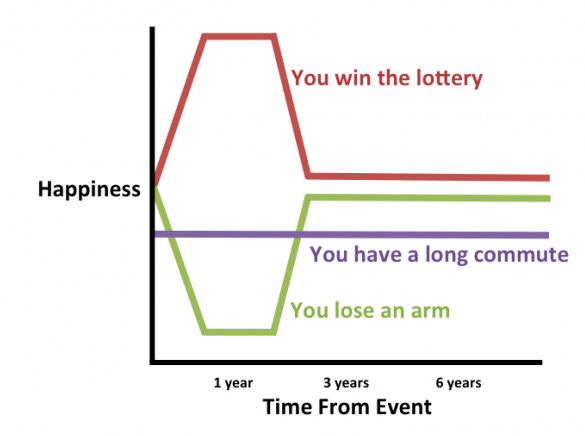I recently came across an article about the UK government expecting civil servants to spend at least 60% of their work time in the office (roughly 3 days a week). After sharing this with other Abavus colleagues, it started a wider discussion around the future of remote working.
Abavus allows a flexible working model, with employees typically commuting to their offices 2-3 times a week – this model has been in place for years, even before COVID. I wouldn’t say we were pioneers in this regard, but in my experience it was fairly uncommon for companies before 2020.
This got me thinking how remote working changes made during lockdown haven’t really been rolled back. The persistence of remote working suggests intentional decisions based on its advantages, despite potential drawbacks.
In the hopes of starting a conversation about remote working, I did some brainstorming and wider reading to focus my thoughts on the pros and cons.
Remote Working is good because it offers better flexibility
You might associate “flexibility” with “staying at home in a dressing gown”. Now that may be true, but remote working is flexible in that it allows you to work anywhere at any time. If you can’t sleep because you’ve got an unfinished presentation tomorrow morning, you don’t have to take the night bus to Liverpool Street and sneak past security to get to your work station – just turn on your laptop at home and work on it!
This flexibility has additional benefits. It expands job opportunities for people living outside of big cities for one, but it also opens doors for international workers and companies looking to tap into a global talent pool.
Studies also find that remote working contributes to increased job satisfaction, and serves as a practical solution for parents. With the days of most families being able to thrive on a single income stream long gone, good luck convincing the next generation that 3 hour commutes to the office are more important than raising their kids!
Remote Working is bad because it’s difficult to measure productivity
How do you hold workers accountable if they’re not in the office? Without webcam surveillance and keyloggers of course.
Unless a job has clear and measurable tasks, assessing productivity remotely can be difficult. It’s not like we all work in cold call sales where the sole metric is how much money you bring in every month.
I would say this is arguably a failure of effective measurement mechanisms. After all, you can just pace up and down the office pretending to be on the phone and people will think you’re working hard (“I’m on a call with a prospect right now, then I’ve got a long lunch with a bigwig on the other side of town. No, you can’t join us. You’ll mess up my deal.”).
Distractions.
They pose an obvious concern with remote working, especially with all the gadgets we have now. Nobody ever talks about similar distractions in office settings, though – casual banter, extended breaks with colleagues, informal conversations around the coffee machine, people around you on calls while you’re trying to concentrate, etc.
However, it’s difficult to deny that working together in an office environment is more straightforward than hopping on a Teams call with audiovisual delays. Studies on remote working productivity are mixed as well – some find it works well, but others find it doesn’t. Ultimately, I think it depends on who you hire – get the right people on board and they’ll get the work done; get the wrong people on board and they’ll be flying to Magaluf during work hours.
Remote working is good because it reduces pollution
You’ve probably heard that the COVID lockdowns had a positive environmental impact due to significantly reduced commuters and traffic. Who would’ve thought that less cars on the road means less pollution? Mental!
This positive impact is particularly notable in urban areas with poor air quality. Did you know that air quality on the London Underground is dangerously poor? I know several people who have reported sneezing or coughing up black tar after spending a long time on the underground. The less time people spend breathing that smog the better!
Remote Working is bad because young workers need mentors and experience
Young people need mentoring and hands-on experience. This is a basic fact of life, and it’s crucial for newcomers transitioning from sheltered academia to the realities of working life. It’s especially true for apprentices who benefit significantly from on-the-job experience and guidance from senior colleagues.
Remote working also hinders exposure to broader aspects of the business. How can they gain a greater appreciation for the company if they’re siloed at home? A lack of in-person experience impedes development, impedes understanding of company (and even human) dynamics, and makes it much more difficult to grasp the particulars of their role within the organisation.
Remote Working is good because it saves employees money and time
Not needing to commute is the most obvious benefit of remote working, especially in the current economic climate.
I’ve heard through the grapevine that savings made from remote working are cancelled out by higher home energy bills, but I don’t think that’s a convincing argument. You’re telling me that the £20 a day I’d be spending on train fares and city food is being spent on gas and electricity instead? All £20, every day? “Don’t make me laugh!”, I say nervously as I quietly turn off my multicolour LED strip lights.
Jokes aside, not needing to commute means you’re not bleeding hundreds of pounds (if not thousands) on travel costs.
It’s not just money you’re saving – it’s time as well. An old report from the Scandinavian Journal of Economics found that arduous commutes have a massive negative impact on mental health.

You think losing a limb is bad? Try commuting three hours a day, five days a week, for 40 years (that’s 31,200 hours, or 1,300 days, or 3.5 years) Source
Time is our most valuable currency. It’s a limited, finite resource. You can lose money and make it back, but once you lose time it’s gone forever.
Remote working alleviates this, allowing people to keep ahold of time that would otherwise be spent commuting, probably with their face buried in someone’s armpit (“This train is being held at a red signal. We should be on the move shortly.”).
Remote working is bad because it has a negative effect on the wider economy
To make a football analogy, when West Ham United announced they would be moving from the Boleyn Ground to the London Stadium, this likely prompted mass groaning from local Upton Park businesses.
It’s essential to recognise that many businesses, particularly smaller and family-owned ones, have built their foundations over decades catering to the needs of commuters. Take away the commuters and many of these small businesses collapse. Unlike larger chains who downsize or set up shop somewhere else, once a small business is gone it’s gone for good, along with its history. Like your dreams, they fade and die (little callback to West Ham there, hehe).
Of course, it’s not our responsibility to subsidise businesses who can’t change with the times, but it’s still a shame, and it still poses potential risks to the overall economy as businesses go bust.
Remote working is good because it can save employers money as well
Forget about the employees, what about the employers? What does remote working offer them?
Well, if people rarely come to the office, why have one at all? Cost savings by forgoing office space can be huge, even if it just involves downsizing. Some councils are considering downsizing their own offices, recognising a diminishing need. Some councils have already done so!
As in-office attendance becomes less crucial, it becomes very difficult to justify purchasing or leasing office space. Who knows, physical offices may soon be a thing of the past. How about virtual offices instead?
Remote working is bad because it increases the risk of isolation
Conclusion
There is undeniably a growing trend among job applicants to prioritise flexible remote working. It’s difficult to convince people to go back to the old model of a 4-5 day office work week now they’ve had a taste, especially with rising costs year after year (unless employers provide monetary incentive to offset those costs).
It’s also worth mentioning that remote working can introduce hurdles in career advancement. You still need to be engaging with peers, supervisors, and management. It’s much easier to be seen and noticed when you’re physically present, particularly in more ‘behind the scenes’ roles. Addressing these challenges is essential for organisations aiming to navigate the evolving dynamics of the modern work environment.
So, those are my thoughts about remote working. What about yours?






